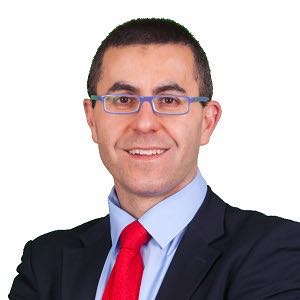High-performing lawyer
I find lawyers to be the most amazing sector among knowledge worker collectives. At this very moment they are undergoing a quiet yet profound transformation that is changing their profession forever. Revolutionary business models are implying new strategies and a disruptive motto for everyone: more tasks, less money.
How to become a high performing lawyer in this complex scenario?
Engineers or software developers, for example, are taught and used to pursue efficiency and productivity already at the university.
Physicians and scientists have too long been accustomed to face a dynamic and constantly changing technology and body of knowledge.
Economists keep on trying to predict the future and, afterwards, try to explain why they failed in their predictions. Just as Adam Smith or John M. Keynes already did in the past.
But lawyers… lawyers come from a world where their knowledge was a scarce and valuable resource. They could even charge their clients for minutes as their time was literally money. That was before global economic downturn limited legal market growth and profitability. Before technology enabled access to free global knowledge. Now their clients ask them about that particular regulation they have already googled, or a sentence they found in a 10€ subscription legal database.
Even in those countries where barrister associations or professional colleges are defending lawyer’s interests, revolutionary business models are emerging. In Australia, the UK, or Canada, where the exercise of legal profession has been liberalized, the effect is more significant. Firms such as Riverview, LawDingo, or AccessLaw are just a sampling of this phenomenon.
One more difference needs to be taken into consideration when talking about these knowledge workers.
They are used to work on their own or in small legal practices. Actually, the solo practitioner is an institution in itself. More than ever before, more than any other collective, these professionals need to introduce new strategies and self-organization techniques.
21st century lawyers
Almost everything a 20th-century lawyer needed in order to get his business going was to hang a sign outside his/her office and wait for customers to come in. Nowadays, the same lawyer has to:
- Do some marketing. Maybe by means of a blog or publishing articles in a specialized magazine
- Investigate about emerging markets
- Keep training on soft skills: public speaking, arbitration, managing etc.
- Track the time and further analyze the results
- Keep all the documents in order
- Make an appropriate use of new technology
- And, of course, keep on reading and writing mounds of legal documents, forms, and contracts in order to be in connection with his/her key facet.
Perspective and control
A 21st century high performing lawyer:
- Is aware of the complexity of the new circumstances (perspective)
- Exercises strategies for day to day business life in accordance with aforementioned awareness (control)
Perspective and control are the two variables that the best self-organizing systems offer: GTD, 7 habits of highly effective people, the 5 choices, or even Personal Kanban.
Moreover, a 21st century high performing lawyer needs to know not only how to get more and better things done from an individual perspective, he/she needs to collaborate with other colleagues, other firms, or even other solo practitioners. And that is where LPO and LPM come into play.
LPO and LPM
LPO (Legal Process Outsourcing) is the exporting of legal services to low-wage markets. Markets that can be placed overseas (India or Pakistan for English speakers, South America for Spanish ones). Or… across the street. If a firm has properly dissected its processes and developed a method for extracting one of them, another firm could specialize on that precise process and develop it in a very efficient way.
LPM (Legal Project Management) is the Project Management Institute (PMI) approach to law market. It consists of an adaptation of their famous PM Body of Knowledge, widely spread all around the world in different areas (marketing, engineering, public works,…). It helps lawyers to address their cases under time, economic, and scope restrictions. It helps to be more efficient.
Fortunately for both sides, professionals with technical profiles are getting interested in legal business. One more sign of the changing times that will certainly generate new, original, and productive associations.
Photo: Flickr / cali.org CC BY-NC-SA 2.0

